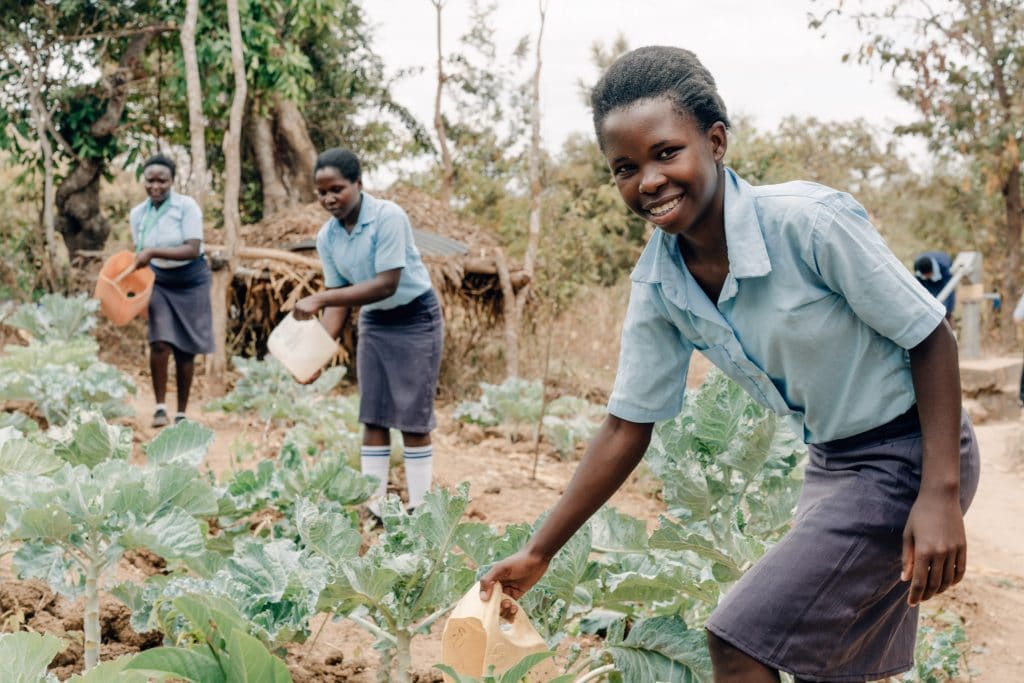- About
- Topics
- Picks
- Audio
- Story
- In-Depth
- Opinion
- News
- Donate
- Signup for our newsletterOur Editors' Best Picks.Send
Read, Debate: Engage.
| October 10, 2015 | |
|---|---|
| topic: | Food Security |
| tags: | #crop, #International Trade Fair, #Kenya, #Nairobi, #prison, #agriculture |
| located: | Kenya |
| by: | Bob Koigi |
The innovation involves growing tomatoes and potatoes within the same stem through grafting. It was first trialed by the inmates in 2010, having been guided by Chinese literature. Years of trial and error and guidance from Kenya’s premier research institution, the Kenya Agricultural and Livestock Research Organization, KARLO would later produce a hybrid dubbed 'Pomato' after the potato and tomato yields.
The plant has received impressive uptake by farmers across Kenya and East Africa and has been hailed as a game changer in addressing the country’s greatest agricultural woes.
“It took us a lot of time, research and patience but we are glad we finally got something that tackles some of the biggest problems that threatens Kenya’s food security. With Pomato, Kenya is inching closer to the food sufficiency resolve,” said Sergeant Samuel Kananda Manene, a prison warden at Kamiti prison and the brains behind the project.
Kenya’s agricultural land has been dwindling over the years as population burgeons, putting pressure on food production even as competition mounts for arable land from the now robust real estate sector and the newfound exploration of natural resources. Kenya is also among the African countries with the highest population growth rate, experiencing about one million births each year according to the World Population prospect report by the UN.
Such an exponential growth rate has not been commensurate with food production, meaning farmers have less land to produce more food. But water is also scarce. According to Kenya’s National Development plan, the country is clustered as a water scarce with demand primarily from agriculture exceeding freshwater sources. It is such food production hiccups that Pomato has sought to address.
“It means you can produce two different crops within the same space of land, use the same amount of water while cutting down on labour cost. These are the biggest hurdles for any food producer in the country,” said Manene.
The hybrid crop, which has superior disease resistance traits comfortably wading off voracious pests and diseases, involves placing a tomato shoot onto the stem of a potato. The two cut pieces are meticulously slid together and wrapped to ensure they stick together. Once grafting is done and the plant flourishes, the leaves from the tomato make the food for potato tubers beneath the soil. Within three months of planting yields are ready.
“What makes it easy and potent to graft the tomato and potato is because they both belong to the Solanaceae (nightshade) family, increasing their compatibility,” added Manene.
After certification by the Kenya Plant Health Inspectorate Services, KEPHIS, the outfit mandated with plant certification for mass distribution, the prisoners then moved into training interested farmers. Within a few months the prison gates were full of curious farmers interested in learning about the innovation. The prison has now upscaled training and demonstration to trade fairs and in farmer groups with an estimated 10,000 farmers already having been trained. “What makes it particularly easy for farmers to do is that the grafting process is straightforward. When farmers trial it and see the results, they want to keep doing it,” said Manene.
Michael Kibirigwi is one such farmer. Having visited the Kamiti prison’s showcase stand at last year’s Nairobi International Trade Fair, he got free training on the grafting. In his last two harvests, he has managed to get 2 gunny bags of potato, and one and a half gunny bags of tomatoes in his half acre piece of land. “I have managed to bring down the cost of buying inputs, labour and buying pesticides with this technology. It also means I am producing double what I used to produce in the same piece of land,” Kibirigwi said.
But it is the groundbreaking role that the crop is playing in giving the many jobless Kenyan youth a lifeline that has made it a front runner. In a country where 70 per cent of all the unemployed population is the youth who also shun traditional ways of farming, new technologies like this one are incentivizing the youth to agriculture. The prison wardens are also hopeful that the project will guarantee prisoners a life after they leave the correctional facility based on the level of enthusiasm the prisoners have expressed. “I have been with the project since it started and I have learnt so much from it. This is my last year before being released and I can’t wait to go pick up my life with the pomato project,” said Calvin one of the prisoners.
Such high promises saw the project being among the finalists in the inaugural Transform Kenya awards, an annual feat meant to celebrate individuals and institutions working to uplift the quality of Kenyans lives through their work.
By copying the embed code below, you agree to adhere to our republishing guidelines.
